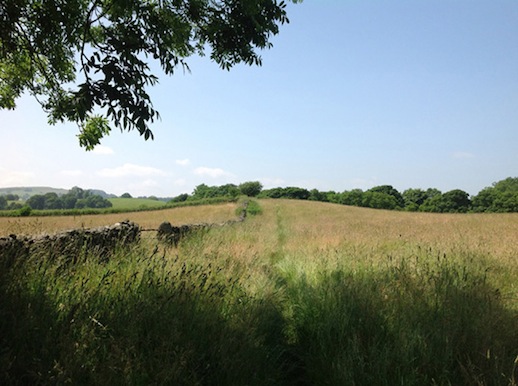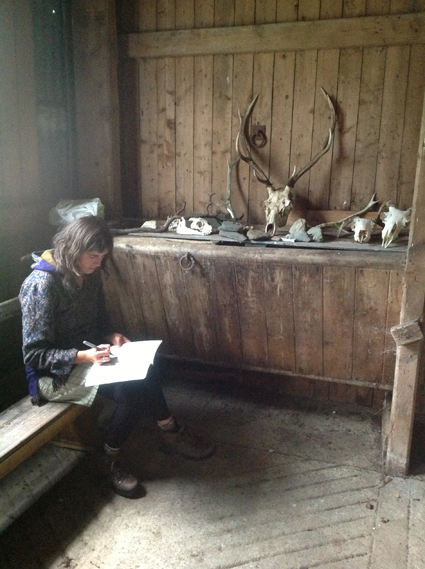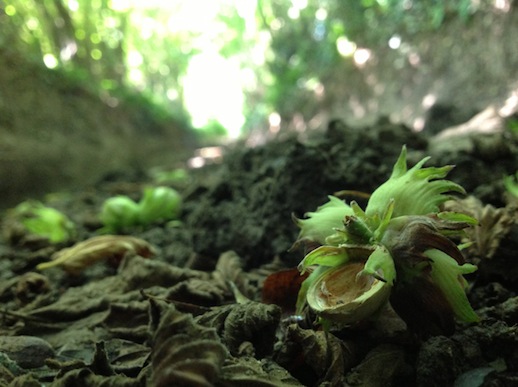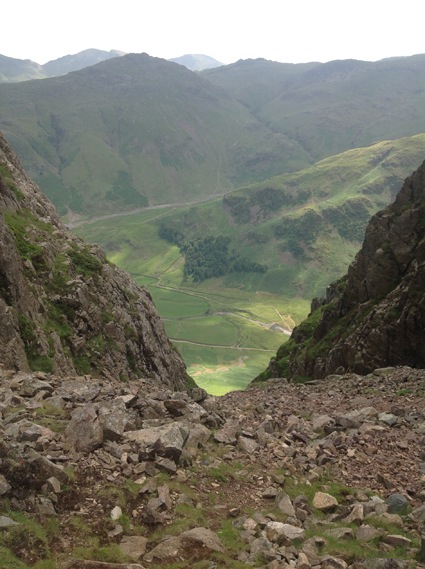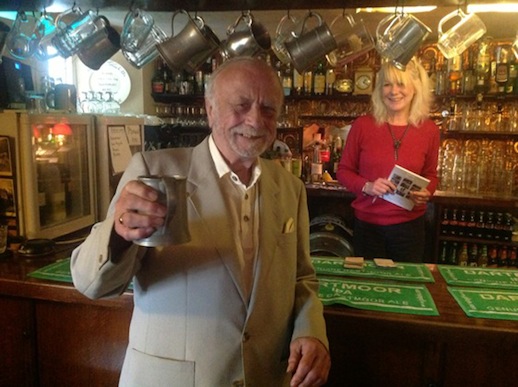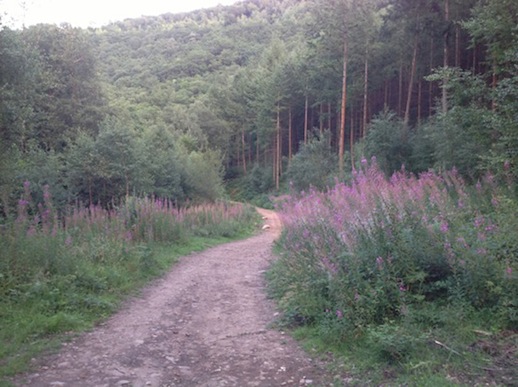Sarah Thomas grew up in Kenya and recently spent two years living in in a rural sheep farming community in Iceland, about which she is writing a book. She has since returned to her heartland Britain, and is based in Cumbria following a summer’s wayfaring for Penguin Books here. She has an MA in Visual Anthropology and writes and makes films broadly about our relationships with environments. She keeps a personal blog at www.journeysinbetween.wordpress.com
“Surely it should be harder than this?”, I remember saying to myself, on more than three occasions.
“Surely it didn’t go entirely without incident?”, some readers have challenged.
Without incident? Under my feet, above my head, in the shaded refuges of Cumbrian drystone walls and in the crackled leaf releases of the Devon hedgerows, microcosmic dramas were continuously unfolding. The particularity of this journey was that I was able to be a part of them. And with each footstep encountering each seemingly insignificant act, I slowed closer to some sort of understanding.
In the summer of 2013/This time last year, I was on foot for two months walking through and into England’s tales and textures – I becoming part of them and they a part of me. I travelled into Cumbria, Dartmoor, and the Forest of Dean, carrying everything I needed on my back. I spent all my days and many of my nights outdoors for two whole months. The nights spent indoors were an acceptance of the kindness of strangers. My route was formed only by the advice of those I met on the way, and instinct. I was a Wayfarer. And better still it was my official job title, printed in green ink on the little cards I gave to people I met. It was not time out from Life. There was no voice in my head telling me I ought to be doing something else. It was Life – this time clothed in an abundant generosity.
Author Robert Macfarlane, together with his publisher Penguin, had brewed an idea to get the paperback edition of his 2012 book The Old Ways to a wider audience by launching a competition to find a Wayfarer. What better way than to use the premise upon which the book is based – that ways only exist because we fare them, and that we are all part of a webwork of paths and connections that cross, diverge and loop back on one another? Through that competition they found me, and I found my place in the world. My job was to fully be wherever I found myself, and write about it on a blog – A Journey On Foot
By sending somebody out into England at a pace at which slow and natural connections were given time to unfold their potential on solid earth, and by my writing of those journeys along byways of soil and mind on the other webwork of connections that is the internet, a concurrent act of path making was taking place. On the one hand I was immersed in the extremely local and often non-human ‘news’ of the landscapes I found myself in, and the tale I told of it was made of the quiet dramas and uneventfulness that made each day pass with ease. On the other, it was most likely because of this quietness that readers became so absorbed in it, some enough to follow the tale to its end and beyond, as it made its own journey across continents and social networks of which I was, at the time, delightfully oblivious.
What I did know was that I was writing for an audience. That knowledge did influence how I experienced things, as I knew that somehow each observation and encounter would seed or burrow into a piece of writing.
The dramatic highs and lows were made not of frightening encounters in forests, or flooded tents (because there were none), but of the topographical aboves and belows. I took readers with me into tarn surfaces, damselflies’ love making, the deaths of moles, the echoed bellowing of red deer in a valley, the old man quietly carving walking sticks in Ambleside. There was fear, once, but it came when perched on a steep loose scree slope looking for a Neolithic axe factory. A concerned passing walker shouted down, “What are you doing?!”. I did wonder, so I wrote about it while perched there.
I did leave my phone on a train at Stroud. Not that I had used it that much. But when you are living on the move, largely away from towns, knowing you have a phone in your pocket can be a life line. Lost and found hadn’t found it, so there was not much I could do. The next time I checked my emails my brother had written saying a girl had found my phone on the train and called him. A day later we were meeting at Stroud station (to which another kind person gave me a lift) and I had my phone back.
Once there had been enough generous encounters of a human and non-human kind to convince me that each was not a one off, that this was to do with the whole heartedness with which I was approaching this journey and the good heartedness of those who saw it, I relaxed into it being “without incident”. I also came to realise that it is unkind not to accept an offer of a bed, even if you might want to sleep outside. People on journeys bring something to people who are sedentary, and there is a natural instinct to care for a traveller in many of us.
It is more remarkable than any dramatic plot twist, for a person trawling the flash-grabbing workings of the internet, to find a place where life is slow and still. I am glad to have created such a place, and in doing so connected with others around the globe tending their own still cyber gardens. I am even gladder to have walked into and with that stillness, enough to know that it really exists, and that it is always there if only we keep that path open by walking it, and trimming back the tendrils that threaten to grow over it.
